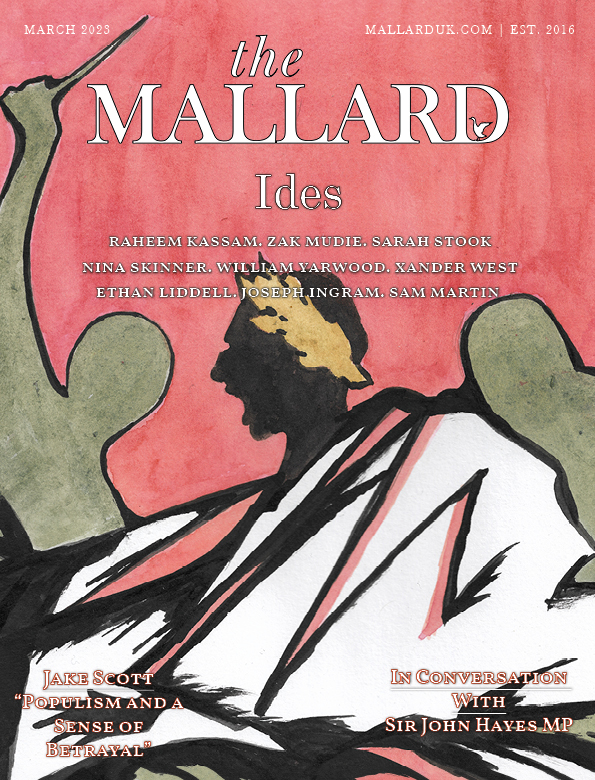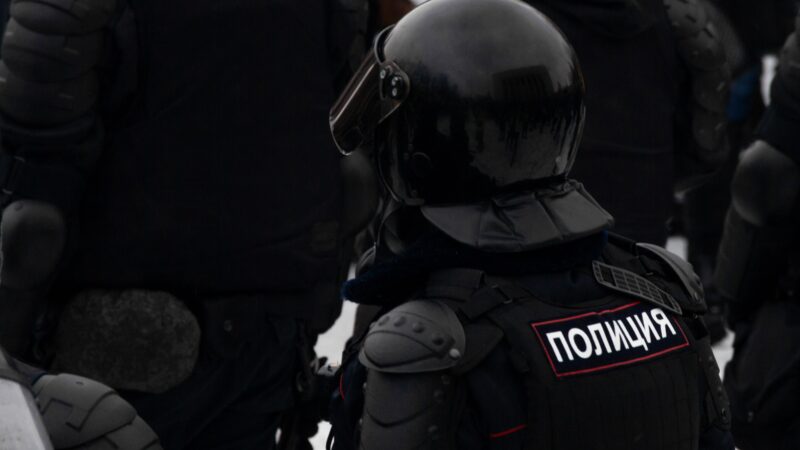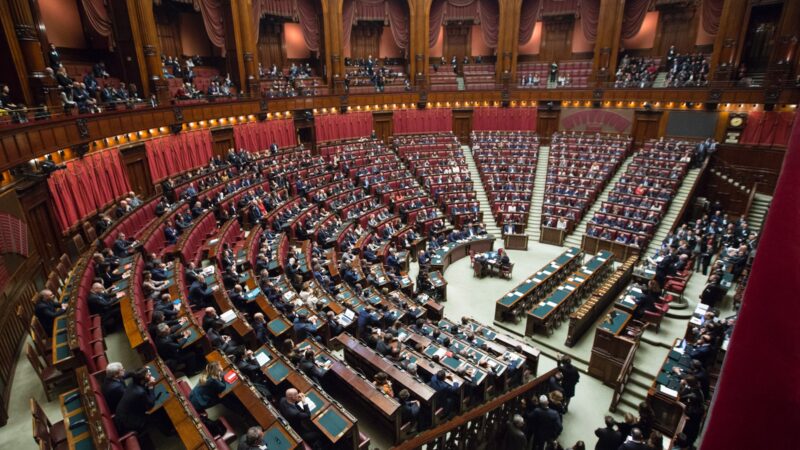Britain is in decline. This much is true. Nobody would dare suggest otherwise – unless, of course, they wish to attest to pure ignorance or twisted glee.
Given this, we are very much in need of sweeping reform. Yet reform is not the product of drawn-out pontification. Ultimately, it is the sum of action: action moulded by proposition.
As such, dear reader, allow me to do just that. May I present to you: A Sensible Proposal.
Shrink the cabinet to its 5 or 6 most capable members, empower ministers to fire civil servants at will, and slash the civil service by at least 75% – it’s not technically Moldbuggian RAGE (Retire All Government Employees), but it’s of the same spirit.
Take the Civil Service Code and throw it on the regulatory bonfire, along with every obstructive procurement rule preventing us from becoming the AI capital of Europe.
Implement mandatory IQ tests for all new civil service hires and scrap the counter-intuitive stakeholder model of policy-making; ensuring government bureaucrats literally, not figuratively, live in The Real World.
Double the length of every sentence, especially for crimes which make civilised society impossible (murder, rape, theft, schmonking weed, etc.). Freedom, if nothing else, should mean the ability to go from A to B without being mugged, molested, or murdered.
Repeat offenders should receive at least one of the following: an extended sentence, a life sentence, chemical castration, or the death penalty. Tough on Crime, Tough on The Causes of Crime.
Abolish the Communication Act and its statutory predecessors to make speech free again. The less time the plod can spend harassing you for tweeting facts and logic, the more time they’ll dedicate to brutalising groomers of our nation’s children, vandals of our nation’s heritage, and abusers of animals.
Furthermore, abolish the Supreme Court and bring back the Law Lords – Tony Blair and Gordon Brown, eat your precious ‘modernising’ hearts out!
Speaking of which, if we can hand out titles to cronies, half-wits, and dodgy sorts, I’m sure we can take them away – put some actual aristocrats in Parliament; of spirit in the Commons and of blood in the Lords.
Abolish the TV licence fee and replace it with nothing. That or broadcast stuff worth watching – like reruns of Kenneth Clark’s Civilisation series or Spy x Family.

This is an excerpt from “Mayday! Mayday!”. To continue reading, visit The Mallard’s Shopify.
You Might also like
-
Victims, Aren’t We All?
Following Donald Trump’s recent announcement concerning returning to Butler, Pennsylvania just over a month after an assassination attempt was made on his life there, there are many things to reflect on.
One of them is one of the few bright spots from the fallout of that event: that being much of the left finally getting a taste of their own medicine for once when it came to cancel culture. Many of those who attempted to downplay and mock the horror, alongside those who expressed disappointment that the would-be killer didn’t hit his target, felt the full wrath of the Frankenstein’s monster they had developed for decades. The parody band Tenacious D and streamer Destiny were the biggest casualties of this, all the while many others were targeted also, from school administrators and Home Depot employees, with the popular X account LibsofTikTok being the witchfinder general on that end.
Despite such an atmosphere and such scalps, many objected to such behaviour, out of some well-intentioned (if ultimately misguided) commitment to principle against cancel culture as a whole. As expected, many centrist commentators (like Triggernomtrey’s Konstantin Kisin and satirist Andrew Doyle) echoed this point, but more surprising were prominent right-wing accounts, often seen as ‘dissidents’ of the movement, the sort of type expected to appear on Alex Kaschuta’s Subversive podcast.
In particular, anon X accounts, like Peachy Keegan and Posts by Feds came to the defence of those being cancelled, especially when it came to the aforementioned Home Depot employee, who they felt didn’t deserve such vitriol.
All of these are undoubtedly pleasant and well-meaning sentiments, and not without some legitimacy. Indeed, the right shouldn’t perhaps get too carried away with such attitudes when the wind blows in our direction – as Nietzsche once noted, ‘Beware that, when fighting monsters, you yourself do not become a monster… for when you gaze long into the abyss. The abyss gazes also into you.’
Despite this, I can’t help but feel that such attitude overall is not the best for this moment or any like it when we can finally use these tools against the left.
Firstly, it is true that every society has boundaries on what is acceptable and what isn’t. As far as not wanting a political opponent dead goes – especially just after an assassination attempt – that is perhaps a pretty good standard for what isn’t acceptable in a free society to advocate for, all the while being a pretty low bar to meet in a democratic society.
Add to that how politically volatile much of the United States is in right now, any attempt to raise the temperature in such a way to make the tinderbox more likely to explode is beyond reckless and reprehensible. Wanting to stem and cull those who attempt to do so, whether they be well-known celebs or simple custodians, is something perfectly legitimate and sensible to want to do.
This is especially true in Trump’s case. This is a man who has already had much vilification against him to the point whereby his possible death seemed to be something much of the mainstream was happy to egg on, including the several calls for his murder by celebrities, and the Beeb going as far as to air a documentary sympathetic to a previous attempted Trump assassin in Michael Sandford (therefore, the swift backlash to maintaining that atmosphere is an improvement from years past). Given that, alongside the increased political violence against the right across the West (including the attempt against former Slovakian PM Robert Fico), any attempt to further normalise such attitudes is definitely not good for any body politic, let alone the divisive one we have now.
Secondly, the left has cancelled several people on the right for far less over the years, and no-one was safe from that. One many lament Tenacious D being dropped from their talent agency but joking about the assassin missing Trump is objectively far worse than what Winston Marshall did to be chased out his own band Mumford and Sons or what Morrissey did to be effectively shunned by much of the music world that once adored him. Their crimes? The former praised Andy Ngo’s book Unmasked: Inside Antifa’s Radical Plan to Destroy Democracy while the latter supported unpopular political parties and criticised much of the UK political class.
Many fans of Destiny may be irritated that he can no longer be monetised on several platforms, but that is nothing compared to YouTuber Felix Kjellberg (better known by his ‘PewDiePie’ alias) being fired from his Maker Studios agency after a smear campaign by the Wall Street Journal to portray him (falsely) as antisemitic over edgy jokes, let alone the lawfare against YouTubers Mark ‘Count Dankula’ Meechan and 6oodFella over similar social media edgy jokes.
One may feel sorry for the Home Depot cashier, but many other custodians were thrown under the bus to little attention. Take Brian Leach, a disabled Asda worker who was fired for sharing a Billy Connelly joke seen as ‘anti-Islamic’ by colleagues. Or Beverly Lockwood, a woman fired from Arc Engineers for being a member of dissident political organisations. Or Gillian Phillips, a children’s author fired from HarperCollins for supporting J. K. Rowling and had to retrain as an HGV driver to make ends meet. Or William Kelly, a Virginian police officer, who was fired for financially supporting Kyle Rittenhouse in his 2021 trial. And the worst part is that this is by no means exhaustive, with these links providing more comprehensive lists to that regard.
That leads me to my final point. We are in a culture war. One side is taking it very seriously, using their power and influence to silence those it doesn’t like for banal reasons – the recent culling of the anti-mass immigration website VDare by lawfare is a good example of this. If the other side isn’t willing to fight back in a similar matter because of some so-called principle, it will not win and doesn’t deserve to.
I for one would love nothing more than a return to the idea of having an equilibrium with the left about not cancelling anyone. For that to work however, there must be one in the first place – something impossible when one side is hopelessly unbalanced. Until the right can wield some scalps and cancel its opponents on its own reasonable terms – such as not wanting the death of a much-maligned political enemy – then there is nothing to be gained from being high and mighty while accomplishing precisely diddly squat, an albatross the right has borne around our necks for far too long. The equilibrium can only emerge once we win, and the left has to agree to our terms of peace.
So do not weep for those on the left who are cancelled. At best pity them, but no more. In fact, I would suggest this: when they happily laugh and wallow in glee as VDare is shut down or they grin as the recent wave of rioters in Britain are jailed for holding sticks or naughty social media posts, revel in similar behaviour when the shoe is on the other foot, whether it be against the unemployed Home Depot colleague or in support of the hefty sentences for the midwit extremists of Just Stop Oil they are so in dismay of.
Until there is victory, there can be no honour. While we wait, we might as well take advantage for when the roles are reversed as best we can, to hopefully end this once and for all. Or to quote the villainous Derrick Lynch from Namco’s Crisis Zone arcade game: ‘So you will understand and fear, your own foolish mistakes’.
Post Views: 366 -
Putin’s War: A Tale of Soviet Romanticism and Western Ignorance | Daniel Hawker
With Russian troops having begun a full-scale invasion of neighbouring Ukraine, President Joe Biden was recently asked by a journalist “Do you think you may have underestimated Putin?” In response to the question, the supposed ‘most powerful man in the world’ offered merely a smirk and proceeded to sit in silence whilst his team rushed to stop the video recording. This was inevitably due to the honest answer being yes – the warning signs have been evident for decades. Let us first consider the historical basis for the invasion.
Vladimir Putin’s position as a Soviet romantic has come to be a defining aspect of his political image. In his 2005 state of the nation address, he notably referred to the 1991 collapse of the USSR as “the greatest geopolitical catastrophe of the century”, an event which left “tens of millions of our fellow citizens and countrymen … beyond the fringes of Russian territory”. It is this Slavophilic perspective that is paramount in understanding the motives and aims of Russian foreign policy in Eastern Europe. With the fall of the USSR came, according to Russian nationalists, the mass displacement of Soviet citizens outside of the Motherland. Millions of Slavic people, all of whom shared a rich cultural history, now living within the borders of independent states, stripped of their collective identity. At this time, young Vladimir Putin was working for the Mayor of Leningrad, and this moment came to shape his ideology and vision for Russia’s future (and the future of former-Soviet satellite states).
Ukraine however, has always occupied a special place within Russian romantic nationalism. The Russian Federation actually has its origins in modern-day Ukraine – specifically the Kievan Rus’ federation (consisting of East Slavic, Baltic and Finnic peoples), which existed from the 9th to the 13th century. Linguistic and cultural roots remain strong, with most Ukrainians also speaking Russian, especially in the eastern and southern parts of the country. Whilst a region of the Russian Empire (and later the USSR), Ukraine was a crucial region for agriculture due to its soil, which is exceptionally well-suited to the farming of crops.
Given this intertwined history, a key tenant of Putin’s romantic mindset is the idea that Russians and Ukrainians are one people, and must therefore exist within the same state. This view was most recently revealed in a 2021 article written by the president, titled ‘On the Historical Unity of Russians and Ukrainians’, in which he affirmed that “true sovereignty of Ukraine is possible only in partnership with Russia”. Stella Ghervas, a professor of Russian history at Newcastle University, has explained that “the borders of the Russian Empire in 1914 remain a point of reference from the Kremlin up to this day”.
However, it seems that the West has chosen not only to ignore how ideologically desperate Putin is to reclaim Ukraine, but also how brutally willing he has been to utilise hard power to achieve his expansionist aims. 2008 saw artillery attacks by pro-Russian separatists (backed by Putin) in the South Ossetia region of Georgia; 2014 brought us the infamous annexation of the Crimean Peninsula, and 2021 saw a mass-movement of Russian troops and military equipment to the Ukrainian border, raising concerns over a potential invasion. These examples should have clearly demonstrated to Western powers the lack of respect Vladimir Putin has for national sovereignty, and that once his mind becomes fixated on regaining lost Soviet territory, he can’t be easily dissuaded. With this in mind, the invasion of Ukraine should be viewed as the inevitable and long-awaited finale to Putin’s expansionist concerto.
The response to the latest developments is hardly surprising: economic sanctions appear to be a firm favourite amongst Western leaders; Boris Johnson has sanctioned five Kremlin-friendly oligarchs and aims to target “all the major manufacturers that support Putin’s war machine”, whilst Joe Biden has levied penalties against major Russian industries and frozen the bank assets of the regime’s major figures. An international effort has also been undertaken, with the UK, US, EU and Canada agreeing to cut off a number of Russian banks from SWIFT, the international payment system. However, such sanctions, especially those against individuals, have received pushback. Following Crimea in 2014, the late and greatly-missed philosopher Sir Roger Scruton published a piece in which laid out how believing that sanctions against oligarchs “will make the faintest difference to Russia’s expansionist foreign policy is an illusion of staggering naivety” – having faced the threat of increased sanctions since then, Russia has built up foreign currency reserves of $630bn (akin to ⅓ of their economy).
In terms of military responses, the general consensus is that Western troops won’t be deployed, and there is a simple logic to it – Western populations have no real hankering for a war: two recent YouGov polls revealed 55% of Britons and 55% of Americans oppose sending their own troops to fight in Ukraine (for the United States, last year’s disastrous withdrawal from Afghanistan undoubtedly turned the public off of war for a while). However, NATO troops have been deployed to Eastern Europe, and we’ve also sent 1,000 soldiers to Hungary, Slovakia, Romania and Poland, in preparation for the inevitable outpouring of innocent and scared Ukrainian families.
Whilst the objectives of the Putin regime and the long-term naivety of the Western order are the two primary factors, the West’s role in bringing this situation about must also be acknowledged, for the sake of honest discussion. In the early 1990s, Boris Yeltsin expressed his desire for Russia to one day join NATO; Putin echoed this in 2000 when Bill Clinton visited Moscow. Despite Russia at these times being a fledgling democracy, they were turned down by the alliance – provided the opportunity to start anew and help the Russian people, the West refused to bring Russia into the international fold.
Further evidence of the West’s culpability is the expansion of NATO’s borders. Although an arrangement with murky origins, the generally-understood version is that the US Secretary of State James Baker, told Mikhail Gorbachev that NATO expansion was ‘not on the agenda’. Regardless, the welcoming of former Eastern Bloc states into the alliance (Romania, Bulgaria, Latvia, Lithuania, Estonia, Slovakia and Slovenia in 2004, and Albania and Croatia in 2009) has only served to worsen relations between Putin and the West – despite the availability of open dialogue for decades, we’ve consistently chosen mistrust when dealing with Russia.
Whilst the West may be shocked that Putin actually went ahead with a military invasion, it can’t seriously claim to have been surprised; the president’s intentions regarding Eastern Europe and Ukraine especially have been nefariously evident for at least a decade, in which time we’ve fooled ourselves, downplaying the risk Russia posed. We must endeavour to remember however, the most tragic consequences of this entire situation: the many thousands of innocent Ukrainian civilians who’ve lost their lives, their homes and their feeling of safety within their own borders. For Russia, sanctions will hurt their citizens, all whilst their understanding of the situation is distorted through propagandistic state media. This really is a horrific situation, and one that has occurred because of Putin’s worldview and Western leaders’ inability to take Russia seriously as a threat.
Post Views: 1,250 -
Populism and a Sense of Betrayal (Magazine Excerpt)
Leading up to December 2022, when I was preparing for my PhD viva, I was told by colleagues – quite consistently – that populism was back on the academic agenda. Clearly, I had timed my PhD well, the covid pandemic aside.
Now, at the conclusion of the process, I have people ask me what my core conclusions are. The truth is, I say, populism is going to remain a permanent feature of our political system for a long time, to such an extent that I think, for all his mistakes and poor insights, Cas Mudde was right to describe our era as the ‘populist zeitgeist.’ I am not alone in making this prediction: in his farewell speech to the European Parliament, Nigel Farage said populism ‘was very popular’; and there abound many different academic attempts at explaining the likely enduring appeal of populism.
Among them I find particular value in Nadia Urbinati’s Democracy Disfigured (2014) and Me, The People (2019): the former is particularly focused on how democracy can be transformed, though populism is only part of that story. In that book, Urbinati attempts to analyse the role of what she calls the doxa in democracy, emphasising the linguistic and dialogical elements of democracy as methods of identifying conflict and resolving them; in response to this, says Urbinati, populism attempts to ‘fix’ the inevitability of conflict. It can do this because democracy (and politics in general) is actually about never attempting to remove conflict, merely attempting to ‘win’ the immediate conflict, whilst accepting that you may ‘lose’ the next one. The underlying unity is, as a result, quite thin, and little more than a general agreement on the process of conflict and resolution, rather than an agreement on the resolution of conflict specifically.
Populism, says Urbinati, works from within the logic of democracy to recognise the inherently conflictual nature of politics and democracy, and then seeks to deny it. Instead of attempting to win now, and accept the possibility of losing in the future, populism attempts to win forever, and deny the possibility of future conflict. In doing so, populism becomes anti-politics.
In the latter book, Urbinati delves deeper into populism specifically, and considers the internal mechanisms of populism, rather than just the impact it has on democracy. In doing so, Urbinati looks at the role of ‘antiestablishmentarianism,’ ‘antielitism’ and, crucially, the messianic leader, in the emergence of populism.

This is an excerpt from “Ides”. To continue reading, visit The Mallard’s Shopify.
Post Views: 948



